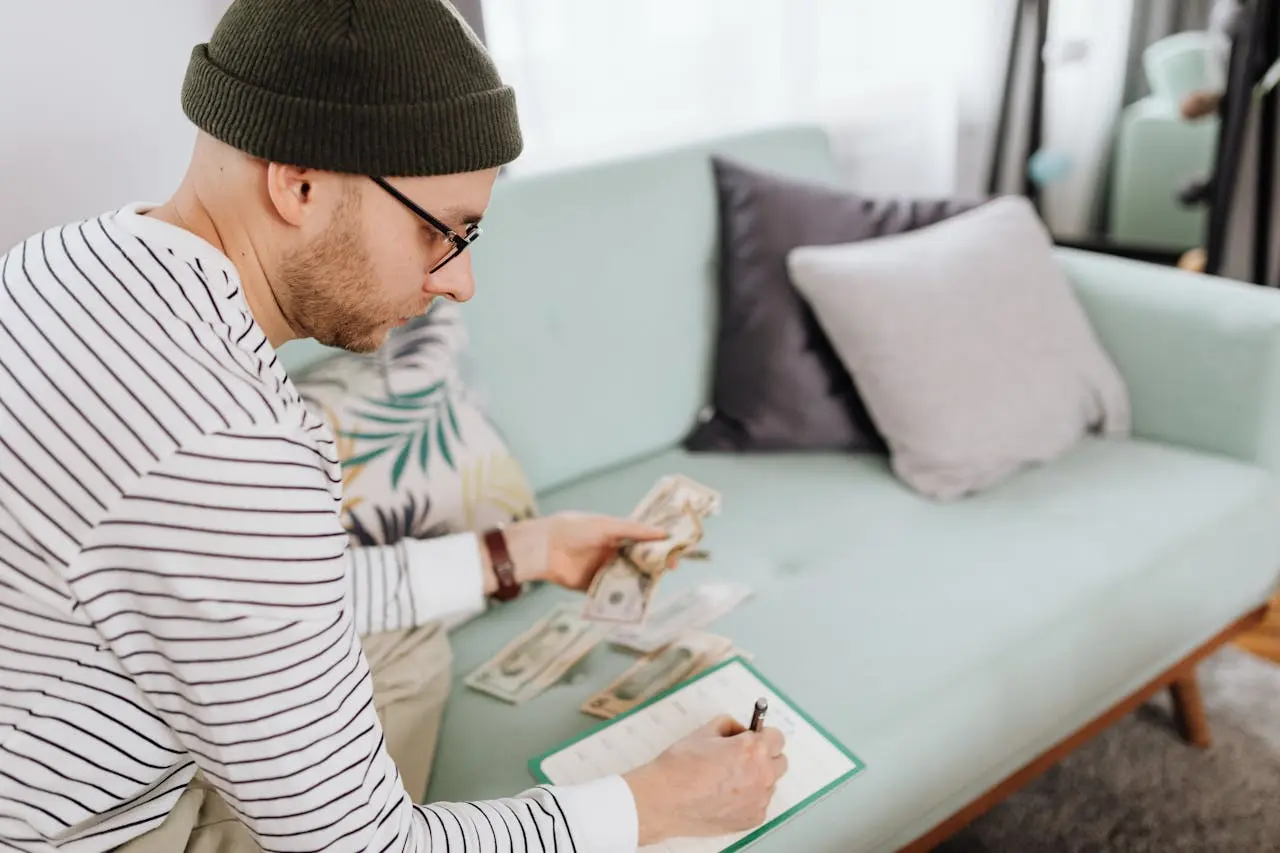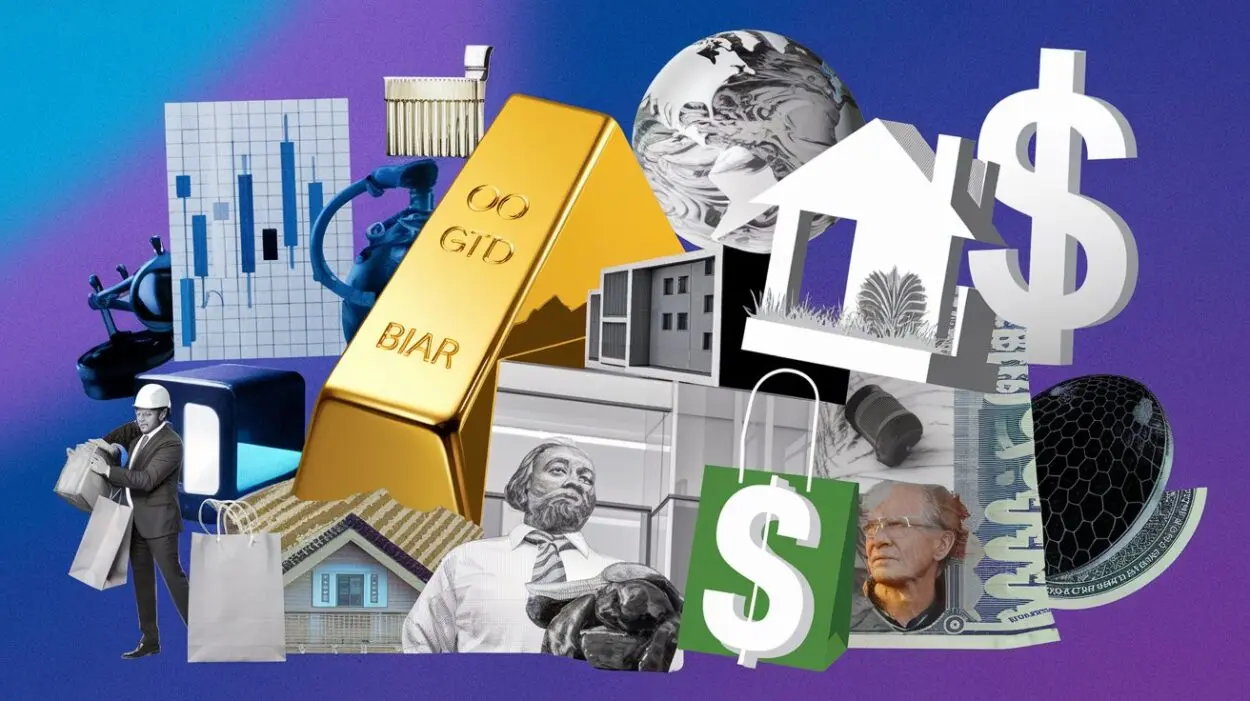Why You Need a Financial Cushion Starting Today
A financial cushion works like a seatbelt on life’s highway. You might not always need it, but when trouble strikes, it can save your future. Even the world’s smartest and most successful investors swear by it.
You might think unexpected events only happen to other people, but the truth is, no one is completely safe from economic storms. Remember the 2008 financial crisis. those months when the U.S. economy and much of the world’s markets collapsed almost overnight. Jobs disappeared, housing values plunged, and people without a financial cushion lost nearly everything in the blink of an eye.
Years later, just as the world was slowly recovering, COVID-19 arrived. Lockdowns, business closures, and a sudden drop in income taught us all a tough lesson: financial security isn’t a “nice-to-have”. it’s a necessity. And during that time, those who had a well-prepared financial cushion. savings set aside for emergencies. were able to face the crisis with far less stress.
A financial cushion works like a seatbelt on life’s highway. You might not always need it, but when trouble strikes, it can save your future. Even the world’s smartest and most successful investors swear by it. Warren Buffett, the “Oracle of Omaha,” always keeps part of his assets in cash so that during market downturns he’s not only protected but also ready to seize investment opportunities.
On the other side of the story, there are cautionary tales. Mike Tyson, the legendary boxing champion, earned hundreds of millions but faced bankruptcy due to poor financial planning and a lack of savings. Even Elon Musk. yes, the headline-making billionaire.nearly lost Tesla and SpaceX in their early years. The only reason he survived those challenges was because of prior investments and available financial reserves.
This is where a firm like Dar Al Tharwa steps in. With over 12 years of experience in Middle Eastern markets, we help migrants, entrepreneurs, and investors build personalized financial strategies. Our goal isn’t just to preserve your wealth, but to make sure you’re prepared for whatever the future brings.
Here’s the simple truth: the next crisis is not a matter of “if” but “when.” If you don’t start building your financial cushion today, tomorrow might be too late.
What Is a Financial Cushion and Why It Matters
A financial cushion is more than just money sitting in your bank account. it’s your personal safety net, your shock absorber in the unpredictable journey of life. It’s the fund you can rely on when things go wrong: a sudden job loss, an unexpected medical bill, a global economic slowdown, or even an opportunity that you want to seize quickly.
Think of it as the space between you and financial free-fall. Without that space, any sudden expense or income disruption can push you into debt, force you to sell valuable assets at the wrong time, or derail your long-term goals. With a well-planned cushion, you gain breathing room. the ability to make decisions calmly rather than out of panic.
The Psychological Advantage
Money is not just numbers on a spreadsheet; it’s deeply tied to our emotions. When you know you have a secure financial cushion, you sleep better at night. You’re more confident in your career choices because you’re not making them under pressure. And most importantly, you can navigate life’s surprises without feeling like the ground has been pulled from beneath you.
Studies have shown that people with emergency savings experience significantly less stress and are more resilient in times of crisis. That resilience isn’t just about surviving a bad situation. it’s about having the clarity to make smart decisions in the middle of it.

How Big Should a Financial Cushion Be?
The size of your cushion depends on your lifestyle, expenses, and financial responsibilities. A common recommendation is to save enough to cover three to six months of essential living costs. For business owners or people with unstable income, building a cushion large enough to cover nine to twelve months may be more realistic.
But here’s the key. it’s not just about saving “whatever is left over.” A financial cushion should be intentional. It should be a line item in your budget, treated like any other essential expense.
Liquidity Is Crucial
Your financial cushion isn’t an investment for long-term growth.it’s about accessibility. That means keeping it in accounts or instruments where you can access the money quickly without penalties or market risk. High-interest savings accounts, money market funds, or short-term deposits can work well.
This is where many people make a critical mistake: they tie up all their money in long-term investments, real estate, or assets that can’t be quickly sold. Then, when an emergency hits, they’re forced to sell at a loss or take on high-interest debt.
Why Dar Al Tharwa Recommends a Strategic Approach
At Dar Al Tharwa, we believe a financial cushion is the foundation of any wealth-building strategy. We’ve seen too many cases where individuals with high income and strong investments still face financial collapse simply because they lacked liquidity when it mattered most.
Our advisors work closely with clients to:
- Calculate the right cushion size based on their needs and risks
- Choose secure, accessible storage options for their cushion
- Integrate the cushion into a broader financial plan so it grows steadily over time
- Protect it from common mistakes that erode its value
In a fast-changing world, having a well-built financial cushion isn’t just a smart move. it’s a form of self-protection. It’s the difference between reacting to life’s surprises in fear or in confidence.
At the end of the day, building a financial cushion is about freedom. the freedom to handle challenges without compromising your dreams. And with the right guidance from Dar Al Tharwa, that freedom is closer than you think.





